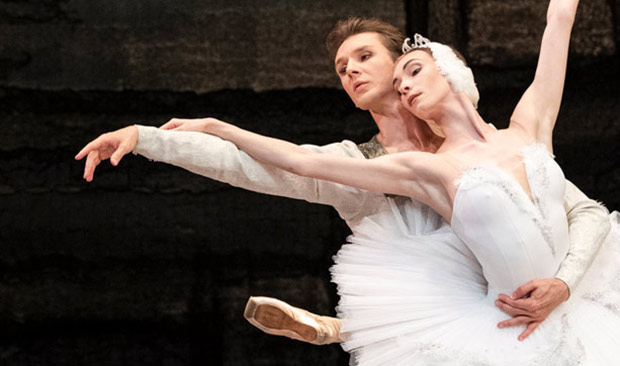
© Foteini Christofilopoulou. (Click image for larger version)
Bolshoi Ballet
Swan Lake
★★★✰✰
London, Royal Opera House
2 August 2019
Gallery of pictures by Foteini Christofilopoulou
www.bolshoi.ru
www.roh.org.uk
Vladimir Urin, General Director of the Bolshoi Theatre, had dedicated the Bolshoi Ballet’s current season at the Royal Opera House to the memory of Victor Hochhauser, the impresario who died in March this year. Victor and his wife, Lilian, must have seen countless performances of Swan Lake during the sixty years they worked with the Russians to present their artists in Britain. The Bolshoi’s Swan Lake was required viewing by important visitors to Moscow; now every tourist to Russia expects to see a production there or in St Petersburg. Whenever a Russian ballet company comes to London, Swan Lake will almost always be part of the season.
The Bolshoi has been dancing Yuri Grigorovich’s productions since 1969, when Swan Lake was obliged to have a happy ending. In Soviet times, audiences needed to go home in good cheer. Since 2001, according to the Bolshoi programme note, Grigorovich, now in his nineties, has at last been able to realise his original vision of Swan Lake as an examination of the hero’s psyche instead of a fable about the heroine’s plight. Audiences now tend to go home somewhat perplexed.
Grigorovich’s approach is the opposite of Liam Scarlett’s for the Royal Ballet’s latest production. Scarlett has tried to make the confected story of a prince in love with a swan-maiden as plausible as he can. His Siegfried is misled and betrayed by a scheming member of his mother’s court, a Rothbart with magic powers. Spoiler alert: Odette, the white swan, is a real girl under a spell who dies by drowning. In Grigorovich’s version, only the court is real. The swan-maidens are Siegfried’s fantasy, conjured up by the Evil Genius, his destiny. The prince is deluded, so when Odette dies or disappears, he comes to his senses, or goes mad. He walks towards the audience as the curtain falls, like Albrecht at the end of Giselle.
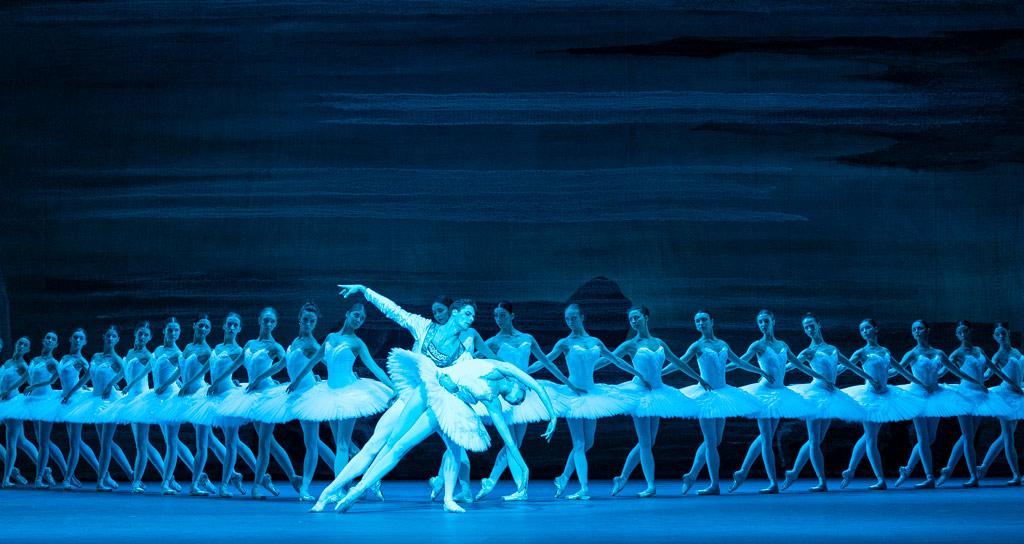
Grigorovich has pared down the scenario, and Tchaikovsky’s score, to just two acts. Siegfried’s role has been enlarged, so that he has plenty to dance in the first court scene. Semyon Chudin presents the prince as a romantic dreamer, elegantly classical and courteous. His mother, the Princess Regent (Kristina Karasyova) makes him a knight, with a gift of a sword instead of a crossbow. His coat of arms, suspended on a cloth shield as a significant element of the set, bears a white and black swan.
Simon Virsaladze’s monochrome backcloths are sketchily impressionistic, enabling swift scene changes between the court and the lakeside as the cloth shield goes up and down. Left alone by the courtiers, Siegfried immediately enters a mystical realm, shadowed by the Evil Genius (Mikhail Lobukhin), who represents his inner longings. The role of the Genius is a big one, calling for a powerful dancer, not a character artist in the guise of an owl. A flock of white swans is revealed, clones of their leader, Odette. Olga Smirnova, with her exquisite physique and line, suggests both swan and woman. Her fingertips are like feathers, her upraised leg in attitude like the pinions of a bird’s wing. Yet she conveys a longing for intimacy as she leans against Chudin in the central pas de deux, wanting his arms around her – or so he believes. Smirnova never distorts the musical phrasing, carried along by it as if indeed enchanted. She and Chudin are ideally matched, their partnership seamless.
He shows what he can do in the second half of the ballet, when the Black Swan and her entourage appear in the ballroom. By then, Grigorovich has whipped through the national dances of the would-be fiançées, keeping the Jester’s interventions to a minimum. Siegfried has paid no attention (he wasn’t even watching on stage). He reverts to what the programme note calls the inner landscape of his soul, entranced by Odile and her fellow black swans. She claims him as of right, so there’s no need for Smirnova to change character as a wicked seducer. Confidently glamorous, she is another aspect of his fantasy woman.
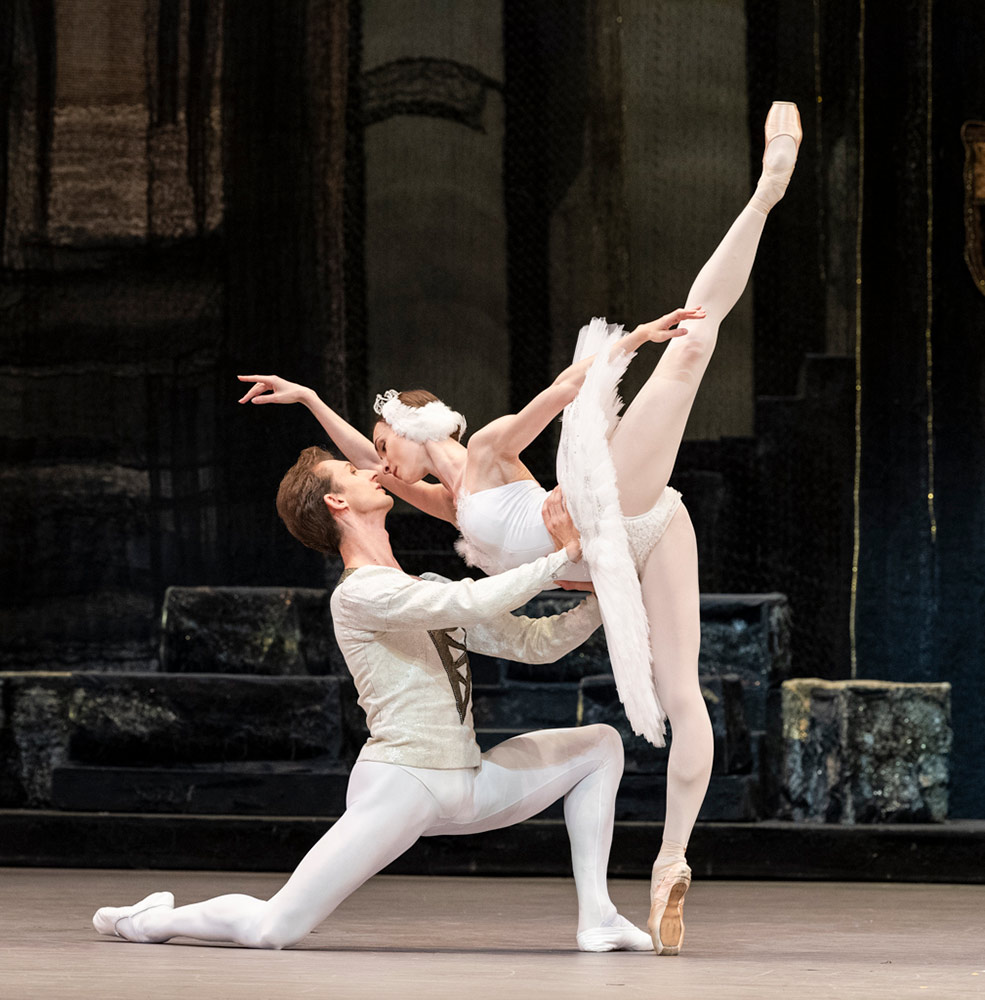
© Foteini Christofilopoulou. (Click image for larger version)
In his solo of rejoicing at her arrival, Chudin floats big, slow leaps across the stage, still rapt in his dream-come-true. Once he is disillusioned, Grigorovich gives him little time to search remorsefully for Odette back at the lakeside. The swan-maidens mourn in unison, as if drilled, and depart discreetly when he arrives. Odette joins him for a brief final pas de deux before the Evil Genius intervenes and appears to drown her. Is it a tragic ending?
Without the pageantry and slower-paced four acts of more conventional versions of Swan Lake, closer to the Ivanov/Petipa original, this production is uninvolving. It’s a 3 star production with 4 star performances – the leading roles are marvellously executed, but they lack a convincing context. Grigorovich’s choreography for the ensembles of courtiers and ballroom guests is unremarkable: no wonder the extras dressing the set look bored. The Bolshoi has done justice to his vision of Swan Lake for fifty years. Time, surely, to think afresh.

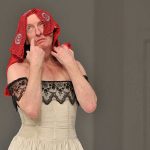
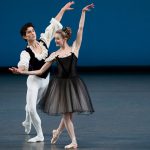

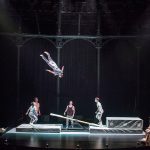

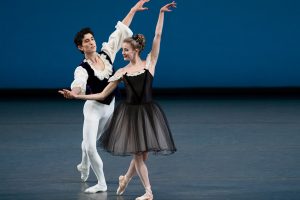
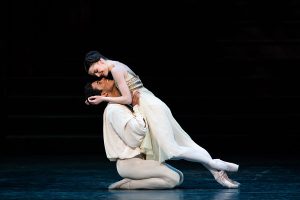
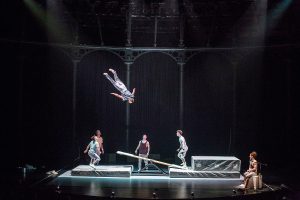

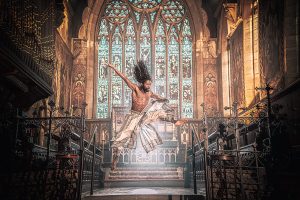


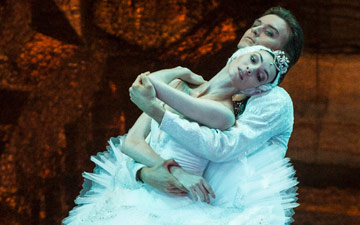
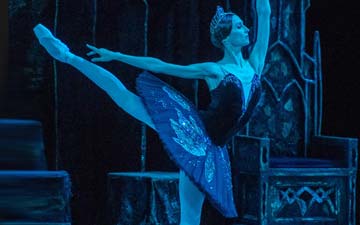

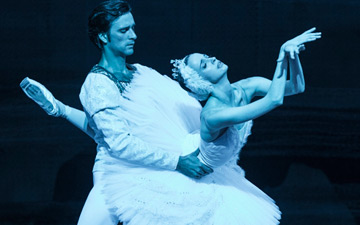
You must be logged in to post a comment.